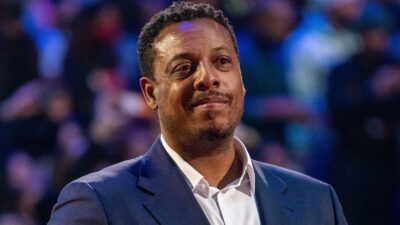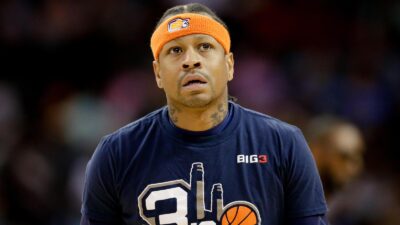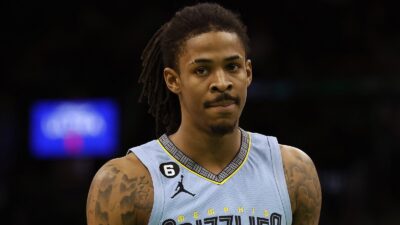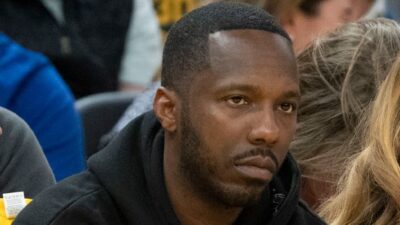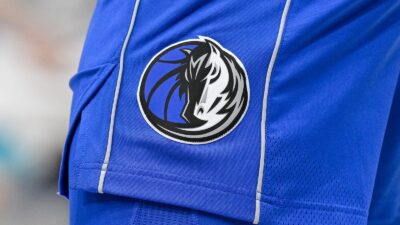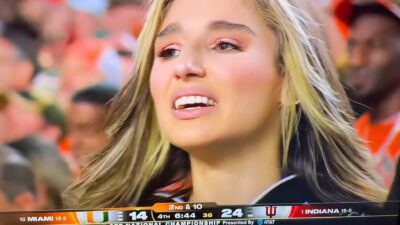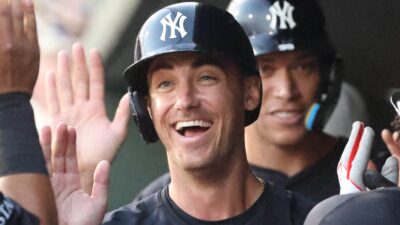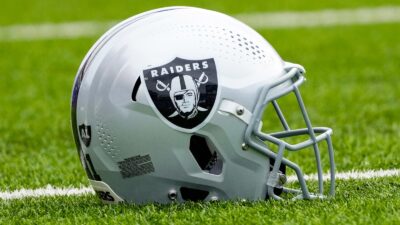 Lockout. It’s a noun quickly gaining in popularity in the English dictionary, along with “Kardashian.” Just when you thought it was safe to come out from the heap of collective bargaining rhetoric from the NFL, now basketball is knee-deep in revenue sharing problems. If you need a refresher, the month is October: usually the time when the NBA’s highlights involve Brian Scalabrine posterizing — hitting a jump shot in his case — some poor schlub from East Central University State A&M. The only question usually being, who will be NBA-bound and who will be sent to Europe, balling on the Baltic come basketball season? This year has been vastly — no, slightly — different. Replace Scalabrine with a paperweight sitting on David Stern’s desk, a pretty equitable trade, and you pretty much have October 2011 in the NBA.
Lockout. It’s a noun quickly gaining in popularity in the English dictionary, along with “Kardashian.” Just when you thought it was safe to come out from the heap of collective bargaining rhetoric from the NFL, now basketball is knee-deep in revenue sharing problems. If you need a refresher, the month is October: usually the time when the NBA’s highlights involve Brian Scalabrine posterizing — hitting a jump shot in his case — some poor schlub from East Central University State A&M. The only question usually being, who will be NBA-bound and who will be sent to Europe, balling on the Baltic come basketball season? This year has been vastly — no, slightly — different. Replace Scalabrine with a paperweight sitting on David Stern’s desk, a pretty equitable trade, and you pretty much have October 2011 in the NBA.
Lockouts are interesting phenomena, since they’re the only area in sports where no news actually is news apparently. During the NFL lockout, the American sports-viewing public was nearly duped into thinking that the NFL preseason had become a glorified advertisement for Men’s Warehouse. Fortunately for the league, the sports cash cow was not taken to the slaughter but an agreement was made. However, that the two sides waited so long to run out the clock and take a knee on the labor impasse might be the reason why that there have so many knees injured in the early season.
In keeping with an American tradition of learning absolutely nothing from the mistakes of others, the NBA and team owners decided to lock out the players over a dispute on the details of the collective bargaining agreement. Note that any nine-syllable word is anathema to the excitement of sports (ironically, so is the usage of “anathema”). Unlike the NFL’s labor situation, where guaranteed contracts are reserved for the elite few who do commercials with Hulk Hogan and pitch electronics equipment, and a significant number of players make a fraction of basketball’s league minimum, NBA players have been able to play exhibition games in various parts of the country or even other countries to support their fur coat habit.
A large portion of the NFL’s players could ill-afford to lose pay stubs for lost games, while a number of pro basketball players — especially non-roster ones — certainly could say the same, the minimum for the latter last season was nearly $500,000 for a rookie alone (versus $325,000 for football players, barely enough for a Bugatti and a beer). Sure the NFL’s brass could shut out the players with harsh ramifications. When the NBA locks out its players, most of them simply shrug their shoulders and buy the house across street with a “For Sale” sign on it and wave at David Stern through the second-story window.
For those of you who love acronyms, take note. In order for the NBA to ratify a new CBA, the two sides need to come to an agreement on BRI (basketball-related income), a big sticking point for the players association, the NBPA. The union is still awaiting a ruling from the NLRB after a May filing with the National Labor Relations Board over a complaint filed against the league regarding unfair labor practices. Until then, as we know it, the players have gone AWOL and professional basketball is MIA, FYI.
One thing that has helped NBA players get by in the midst of labor strife is the very thing that pushed NFL players to the bargaining table. The opportunity for NBAers to ply their trade in impromptu exhibition games and staged events allows them to make a dollar or two or one-hundred thousand. What were the NFL players to do while the lockout was taking place during the Summer of Shove? It’s not as if they could stage a football game in the parking lot of a Walmart and charge three bits a gander to show up.
The basketball players whose celebrity has not afforded them the opportunity to play in these exhibitions have found solace elsewhere. Some have gone to China, like Kenyon Martin, J.R. Smith, and Wilson Chandler, who have professed their desire to take their talents to Xinjiang Gyang Hui (doesn’t really have the same ring to it). Deron Williams left New Jersey, for the time being, and headed for the rolling hills of Istanbul (yet another in many slights for the state of New Jersey). Sasha Vujacic will be headed for Turkey as well, perhaps hoping that the Turks have yet to discover the art of a good Mr. Sharapova joke. Jordan Farmar, with no NBA season in sight, has signed on with Maccabi Tel Aviv. He will certainly get a lesson in self-deprecation, playing in a league sponsored by the Israeli Sports Betting Board (“Tim Donaghy, line 1”) and one in which the league mascot is a weird, two-eyed creature with two teeth that seems a lot more excited than the fans. Well, Jon Scheyer and Dan Grunfeld play in the league: Not too shabby.
Still, other players have gotten more inventive. Luke Walton has joined the University of Memphis coaching staff as an assistant, where he will presumably average 1.7 points per game fewer than he did last year but will find a way to enrich young, inquiring basketball minds. Delonte West is seemingly the most inventive of the bunch. A man who has earned over $14 million dollars in his career, including more than a million dollars last season for the Celtics, decided to find employment working in the stockroom at a Maryland-area furniture store. Presumably, when he gave out his resume, LeBron James was not listed under the references section. It’s not as if he is going into this line of work unprepared. Having played less than 19 minutes a game last season, Delonte is well versed in moving benches.
The NBA season was supposed to start in about two weeks. Instead it was canceled amid the politicking and finger-pointing that has become so popular in labor negotiation theater. At this rate, if this carries on any longer, December will roll by with no games to entertain Santa, but plenty of talk about an amnesty clause.

